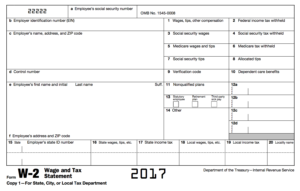As children we had things in our lives that scare us, things that make us happy, different smells that bring up emotions in us, different people in our lives, and different experiences.
What we don’t understand is those things go with us to our adulthood and one of the most prominent is money. Think about it: What was your relationship with money when you were a child?
I know what mine was.
When we were kids we were not allowed to talk about money, we were very poor and my dad came in and out of our lives. When my mother and father did speak about money they were usually screaming at each other, they either screamed at each other or nobody spoke. So, in our household the subject of money was very tense, very scary. I didn’t understand how money worked when I was 4 or 5 years old. Yet I knew we didn’t have any and I knew that having money made things better and not having money made things worse.
So, as I got older and I started babysitting, I would hide my money away. There would be things that I could have bought with it yet I chose not to because I was afraid to lose $5. Back then when you babysat you made 50 cents an hour if you were lucky.
So, I started feeling very anxious about my money and sticking it in my underwear drawer or my sock drawer. It wasn’t until I got into high school that I started putting it in a little savings account because my mother worked at a bank. So, when I was in high school I started really understanding how it much cost for my mom to have me in her life… my uniforms, my books, anything we needed, food, gasoline, groceries. We knew when we were low on money because we had waffles or pancakes and scrambled eggs for dinner because we didn’t have money for meat or vegetables.
So, I started to develop this relationship of anxiety with money and if you look back to your childhood, you can see that the relationship you have with money now is a relationship that started a long time ago…
It’s very important to look at that relationship now when you have money. Are you anxious? Are you having struggles with buying something you want and feeling guilt from it?
Our relationship with money from our childhood is one of the most important things you’re going to learn when we start going forward.
Parents feel like they can’t speak to their children about money yet we need to talk to our children about money and how it works. You don’t need to scare them, you don’t need to give them anxiety about it but you do need to speak to them about how money works in your household.
So, let’s say you and your husband are working and the money comes in to the house. Well you have to think of your household like a team and your children need to be part of the team. They need to know that yeah, maybe the kid down the street is getting a car for his birthday or he just got a bike or he is going to take ice skating lessons, but we can’t and here’s why.
If you tell children why, if you speak to your spouse or your significant other with whom you’re sharing expenses about the why and the what you will not argue and feel as anxious. Start talking about it to your children and with your spouse. There should be no secrets… it shouldn’t be about “oh! I just spent $35,000 on a purse, I can’t tell my husband that.”


